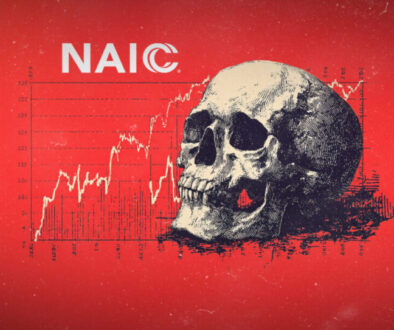June 1 deadline looms for debt ceiling crisis
It was probably too much to expect that meetings this week between President Biden and GOP leaders would result in a deal to raise the nation’s debt ceiling before the government runs out of money and defaults. Each side seems intractable: the Republicans want massive spending cuts attached to Congressional approval and Biden says lawmakers have a constitutional duty to okay the debt ceiling increase with no conditions.
Who’s going to blink first? And what if neither side does? Secretary of the Treasury Janet Yellen says the two sides have until June 1st – just days away – to settle the debate before the U.S. runs out of money and defaults on trillions of dollars worth of debt.
What happens if no agreement is reached is somewhat debatable but none of it good.
Default would be ‘greatest unforced error’
“If the U.S. defaults on its debt – or even comes near the brink of defaulting – it would represent the greatest unforced error in US and financial markets history,” says Robert R. Johnson, professor of finance, Heider College of Business, Creighton University. “The time for fiscal prudence is not when your credit card bill comes due, it is when you are pulling it out to make expenditures. Hopefully, this is political posturing, but given the lack of economic savvy of many current politicians – and, their seeming ambition to draw attention to themselves by taking extreme positions – anything seems possible.”
Indeed, the extreme members of House Republicans seem intent on crashing the economy for the sake of their principles.
“The most conservative of us will only support a responsible adjustment of the debt ceiling if it’s accompanied by meaningful and serious fiscal reform,” said Rep. Clay Higgins, (R-Louisiana) a member of the Freedom Caucus, a group of nearly 40 representatives that support severely shrinking the U.S. Government.
But would they truly go the mat and risk the economic results of a default? The U.S. has raised the debt ceiling 78 times since 1960 and avoided default, including three times with little debate under President Donald Trump, even as the nation added nearly $8 trillion to its national debt. There’s too much riding on a default for many to believe the GOP will follow through with its current threats.
An analysis by Moody’s Analytics found that the House GOP legislation calling for cuts would cause hundreds of thousands of job losses and push the economy into a recession.
GOP House legislation impacts
A recent analysis by the House Budget Committee found that – alongside other devastating impacts – the bill would:
Put hundreds of thousands of people at risk of losing Medicaid coverage
Threaten access to food assistance for thousands; eliminate preschool and child care for children
Increase housing costs
Make college more expensive
Eliminate many air traffic control towers and rail safety inspectors
The GOP-approved bill would also suspend investments in clean energy — putting thousands of alternative energy and manufacturing jobs already announced since the passage of the Inflation Reduction Act in peril.
These repercussions don’t even take into account the impact on the nation’s stock market, overall economy, and global consequences. Some analysts say just the threat of default is causing great concern around the globe.
“The negotiations and political gamesmanship might lead to increased volatility in stocks and bonds, impacting investors worldwide,” said Leo Smigel, founder of Analyzing Alpha, an algorithmic trading and data science site. “The US dollar’s position as the global reserve currency could be at stake. If foreign investors lose confidence in the dollar, they might start diversifying their currency portfolios, potentially knocking the dollar off its pedestal. This could create a domino effect on the US economy and the worldwide financial scene.”
The alternatives for Biden among what some analysts say is a silly but highly dangerous debate are also fraught with problems.
Some have said the president could invoke the 14th Amendment of the Constitution which says “The validity of the public debt of the United States, authorized by law… shall not be questioned.” Some scholars say this gives the president the right to bypass Congress should the US debt does indeed become questioned.
“The 14th Amendment idea is interesting but controversial,” said Tim Doman, an investment analyst and CEO of Top Mobile Banks. “It could help avoid deadlock in Congress, but it might also trigger a lengthy legal fight and more uncertainty.”
$1 trillion coin generates discussion
The notion that the government could simply mint a $1 trillion coin to pay off debt seems like a gimmick yet has garnered some serious discussion.
”Minting the coin bypasses this gridlock, as it relies on the authority of the Treasury Department and the Federal Reserve, reducing the risk of political brinkmanship,” said Kevin T. Taylor, managing partner and head of business development and client acquisition at InSight, a Colorado-based investment advisor. “The Treasury Department can mint the coin and deposit it into the Federal Reserve, instantly increasing the available funds to cover the government’s obligations. This eliminates the need for emergency measures, such as prioritizing payments, which can have adverse consequences for government programs, public services, and economic stability.”
Shifting conversation from debt ceiling to budget
Taylor said minting the coming is the most elegant way the president can move the conversation from the debt ceiling to the budget.
“This would take away the urgency and be a great step toward testing Congress’s ability to govern instead of tweet,” he said.
And yet, many believe, or are hopeful, that the sturm and drang over the debt ceiling is just political gamesmanship and posturing that will simply result in another Congressional debt ceiling increase for the 79th time.
“No one’s agenda – other than perhaps some politicians who want to burn the house down – would be served by default,” says economist Johnson. “Much like the movie ‘Groundhog Day,’ it seems the identical debate on raising the debt ceiling keeps happening over and over.”
In 2011, Johnson notes, grandstanding over raising the debt ceiling sent the financial markets into a full-blown panic. One major impact was the downgrade of U.S. sovereign debt from AAA to AA+ by Standard & Poor’s. The impact of default would have the very opposite effect the Republicans are seeking.
“It would be ludicrous for the US government to default on its debt,” he said. “If that would happen, interest rates on the debt would rise and the US government debt load would grow exponentially, as the government would need to borrow more to finance both new and existing debt.”
Doug Bailey is a journalist and freelance writer who lives outside of Boston. He can be reached at doug.bailey@innfeedback.com.
© Entire contents copyright 2023 by InsuranceNewsNet.com Inc. All rights reserved. No part of this article may be reprinted without the expressed written consent from InsuranceNewsNet.com.
The post June 1 deadline looms for debt ceiling crisis appeared first on Insurance News | InsuranceNewsNet.



